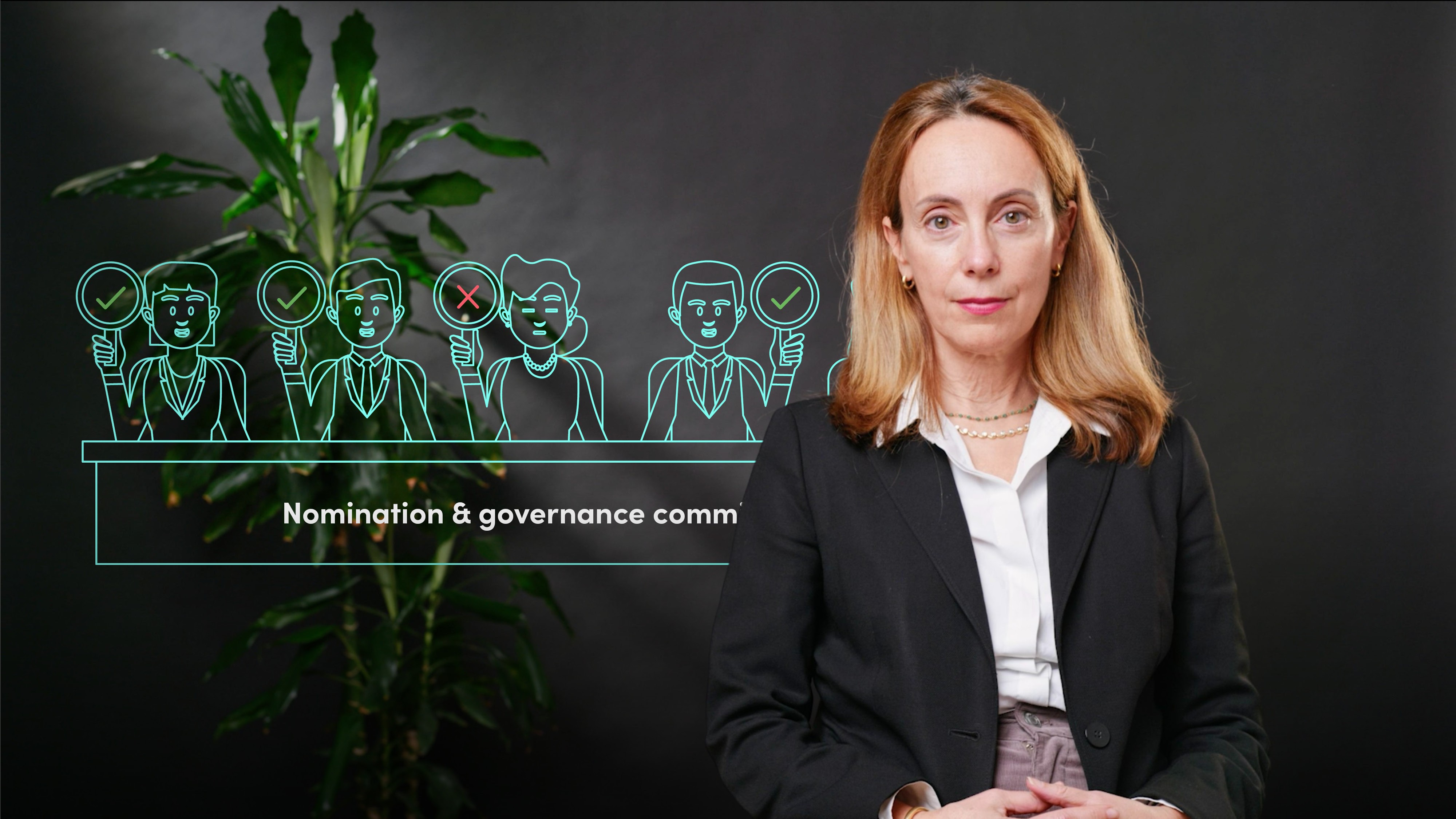
Nomination and Governance Committees

Natalia Nicolaidis
30 years: General Counsel
Nomination & Governance Committees (NomGov) are responsible for board oversight and succession, as well as ethics and compliance. They oversee three main processes: candidate selection, board and individual director evaluation, and integrity and ethical decision-making oversight. NomGovs achieve effective candidate selection by using a “skills and experience” matrix. Recent challenges in corporate governance have increased expectations for NomGovs, including considerations of strategic risks, leadership and talent development, ethical practices, and diversity and inclusion. Failure to stay on top of these trends can be costly to companies, as demonstrated by the money-laundering scandal at Danske Bank.
Nomination & Governance Committees (NomGov) are responsible for board oversight and succession, as well as ethics and compliance. They oversee three main processes: candidate selection, board and individual director evaluation, and integrity and ethical decision-making oversight. NomGovs achieve effective candidate selection by using a “skills and experience” matrix. Recent challenges in corporate governance have increased expectations for NomGovs, including considerations of strategic risks, leadership and talent development, ethical practices, and diversity and inclusion. Failure to stay on top of these trends can be costly to companies, as demonstrated by the money-laundering scandal at Danske Bank.
Subscribe to watch
Access this and all of the content on our platform by signing up for a 7-day free trial.

Nomination and Governance Committees
13 mins 33 secs
Key learning objectives:
Outline the key responsibilities of the NomGov
Understand how the role of the NomGov has changed in recent years and the trends impacting them
Overview:
Nomination & Governance Committees (NomGov) are responsible for board oversight and succession, as well as ethics and compliance. They oversee three main processes: candidate selection, board and individual director evaluation, and integrity and ethical decision-making oversight. NomGovs achieve effective candidate selection by using a “skills and experience” matrix. Recent challenges in corporate governance have increased expectations for NomGovs, including considerations of strategic risks, leadership and talent development, ethical practices, and diversity and inclusion. Failure to stay on top of these trends can be costly to companies, as demonstrated by the money-laundering scandal at Danske Bank.
Subscribe to watch
Access this and all of the content on our platform by signing up for a 7-day free trial.
What are the key responsibilities of NomGov?
The NomGov key responsibilities include board oversight and succession, ethics and compliance, risk review, shareholder engagement, and corporate culture.
They oversee three main processes:
- Candidate selection based on skills and qualifications
- Board and individual director evaluation against industry standards with the help of consultants
- Integrity and ethical decision-making oversight, which includes effective risk management in the legal and compliance environment and vigilance over industry-related changes.
What are some recent NomGov challenges?
NomGov's responsibilities are increasing as expectations for sound governance grow. The pandemic and the Ukraine war have impacted corporate governance, and NomGov is expected to consider factors such as strategic risks, ethical practices, and cognitive diversity in board composition. The Securities and Exchange Commission recently amended federal proxy rules to require the use of universal proxy cards in contested elections, highlighting the importance of board effectiveness and director competence. Leadership and talent development, succession planning, and transparency within supply chains are also important considerations.
What trends are impacting NomGovs?
NomGovs are responsible for shaping corporate governance policies and practices in response to fast-changing trends, including ESG, human capital, and diversity & inclusion (D&I).
With ESG becoming a crucial priority, NomGovs are selecting directors with industry and technical expertise in ESG who can assist in setting a company’s sustainability goals through their industry and technical expertise.
Human capital management requires talent development programs and connecting the dots between digital and human elements.
D&I demands transparency and accountability on gender, racial, and ethnic grounds at both board and enterprise levels. Companies are managing D&I as a reputational risk and business advantage over peers.
Subscribe to watch
Access this and all of the content on our platform by signing up for a 7-day free trial.

Natalia Nicolaidis
There are no available Videos from "Natalia Nicolaidis"



























